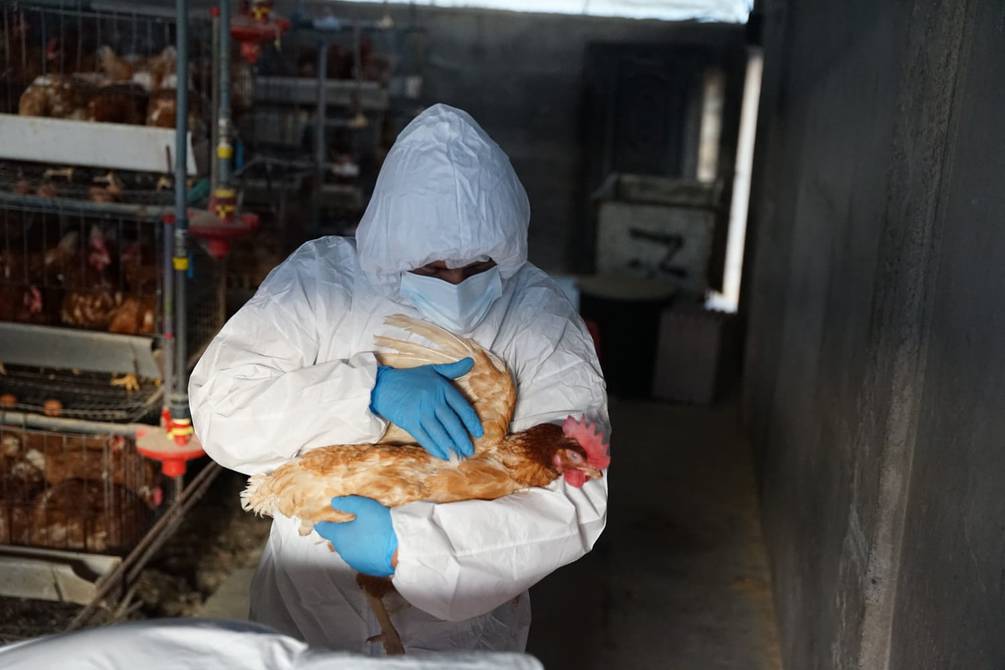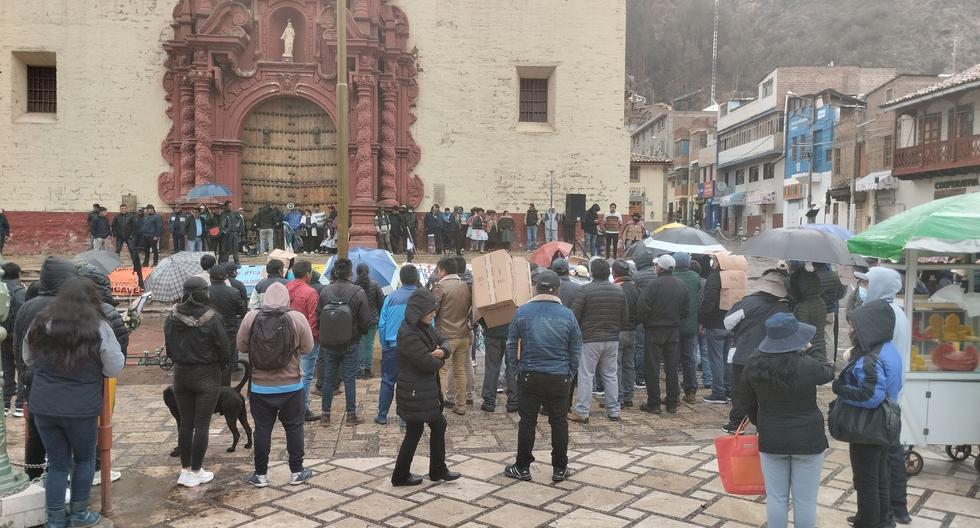“We have confirmed 12 deaths today in Puno, during clashes with law enforcement in the vicinity of the Juliaca airport,” a source from the Ombudsman’s Office in Lima told AFP.
The victims had projectile impacts on their bodies, explained a health official from the Calos Monge hospital, in statements to the N television channel.
“What is happening is a massacre among Peruvians, I ask you to calm down, do not expose yourselves,” exclaimed the mayor of Juliaca, Oscar Cáceres, in a desperate appeal to the population interviewed by La Decana radio station of that town.
The violent protests took place during an attempt to occupy the Juliaca airport, which is under police and military guard. A similar attempt had occurred on Saturday.
While the country is plunged into a serious institutional and political crisis dotted with demonstrations and road blockades, the government of Dina Boluarte on Monday prohibited the entry of former Bolivian president Evo Morales into Peru until further notice for “intervening” in internal political affairs. from the country.
“The record of the impediment to entry into the country was ordered, through all immigration checkpoints, of nine citizens of Bolivian nationality, including Mr. Juan Evo Morales Ayma,” said the Ministry of the Interior in reference to the former president. who has expressed his support for the protests against the Boluarte government.
Puno, the Peruvian Aymara region bordering Bolivia, has become the epicenter of the protests with an indefinite strike since January 4.
From there, a march is organized to the Peruvian capital that should arrive on January 12, according to various calls from social groups, which mainly bring together peasants.
The announcement against Morales coincides with new protests and roadblocks in six of the country’s 25 regions, where protesters are demanding the resignation of President Boluarte, the calling of a Constituent Assembly, and the freedom of ousted President Pedro Castillo.
“In recent months, foreign citizens of Bolivian nationality have been identified who entered the country to carry out activities of a proselytizing political nature, which constitutes a clear affectation of our immigration legislation, national security and the internal order of Peru” , added the ministry to justify the decision.
Morales, who presided over Bolivia between 2006 and 2019, has had an active presence in Peruvian politics since the former leftist president Pedro Castillo came to power in July 2021 until his dismissal on December 7. In November he visited Puno.
Castillo was ousted after a failed coup d’etat and is serving 18 months in prison handed down by a judge for the crime of rebellion.
Morales regretted the decision of the Peruvian government on Twitter and maintained that it seeks to “distract and avoid” the responsibilities for the “serious violations” of human rights.
– Separate Peru? –
The Peruvian authorities maintain that Morales intends to divide the territory of Peru, promoting secession through the creation of “Runasur”, an Andean region that would supposedly include part of the Peruvian Andean south with Bolivia.
“The only separatism in Peru is caused by racism, exclusion and discrimination of the power groups in Lima against their own people. Deep down, the right does not accept that the indigenous, those vilified for their skin color, last name or place of origin, come to power,” Evo Morales replied over the weekend.
Last year, the right-wing-controlled parliament declared Morales persona non grata.
The prohibition of her entry into Peru was demanded by Congress, which had become the main point of support for Dina Boluarte.
– Short truce –
The protests against the government of Dina Boluarte resumed on January 4, after a brief lull due to the end of the year holidays.
The protesters maintained this Monday roadblocks in six of the 24 departments of the country, including tourist areas such as Puno, on the shores of Lake Titicaca; Cusco, Arequipa, Madre de Dios, Tacna and Apurimac.
The police station in the city of Puno woke up with a barricade of bags of dirt and a police guard, as a precaution against the demonstrations in that highland city.
“We are concerned about what is happening in the city. The problem is that they want to damage the airport. They are using bombards. We have more than 50 wounded police officers. We are calling for calm,” Police General David Villanueva said early at a press conference in Puno.
In anticipation of possible attacks, the Ministry of Transportation indicated that it will suspend operations at the Alfredo Mendívil airport in Ayacucho on Tuesday before the start of a 48-hour strike.
Although she considers herself to be on the left, Boluarte is seen as a “traitor” by the communities and militants who support Castillo. The right-wing sectors that previously promoted her fall now support her. These mobilizations accumulate 34 deaths in almost a month.















